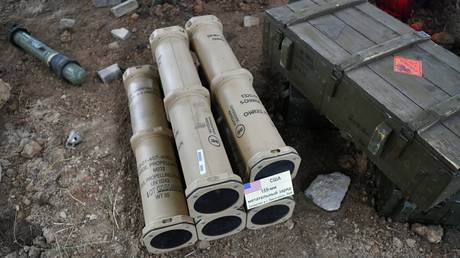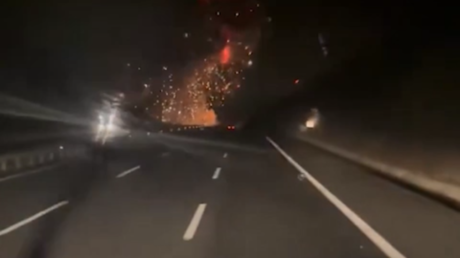
Washington is working on persuading Western military industry to increase production
Almost all NATO countries are looking at depleted stockpiles of weapons and ammunition due to the amount of aid they’ve sent to Ukraine, US ambassador to the bloc Julianne Smith admitted on Tuesday. The US, NATO and the EU are all working on urging the Western military industry to ramp up production to deal with the shortfall.
Speaking at an event hosted by the think-tank CSIS, Smith used the example of Estonia, which has given a massive quantity of aid to Ukraine and is now facing “some very real shortfalls.”
“They are not alone. We see that across the alliance writ large,” the US permanent representative to NATO said.
While the “contact group” for Ukraine is focused on organizing deliveries to Kiev, NATO has tasked the Conference of National Armaments Directors (CNAD) to deal with the problem of “declining stockpiles across the alliance,” said Smith. Meanwhile, the EU has launched a separate initiative aimed at the military industry.
“Lots of flowers are blooming here,” Smith told CSIS, adding that the key is to find “connective tissue” so the EU, NATO, and the US work together and not at odds. From what Smith explained, all of these efforts are aimed at persuading the military industry in the West to expand production.
The US and its allies have been funneling military aid to Ukraine since 2014, but ramped up the deliveries of ammunition, small arms and heavy weapons – including tanks and artillery – starting in February, when the conflict with Russia escalated. Since then, Moscow has on multiple occasions warned Western nations against arming Kiev, arguing it can only prolong the ongoing conflict.
Initially the shipments were just surplus, but very soon the Western nations began raiding the main stockpiles of their own militaries, already “hollowed out” by years of focusing on expeditionary wars and counter-insurgency. In August, EU foreign policy commissar Josep Borrell described most Western European forces as “bonsai armies,” the “miniature versions” of the real ones.
By September, however, it was apparent that the Western cupboards were running dry. NATO Secretary General Jens Stoltenberg called for more production, as numerous experts pointed out that even the Pentagon stockpiles were not infinite.
Meanwhile, Russia has ramped up its own defense production, especially of tanks, missiles and artillery ammunition. “Don’t hold your breath” for Moscow to run out of weapons, deputy National Security Council chair Dmitry Medvedev told the West in October.




